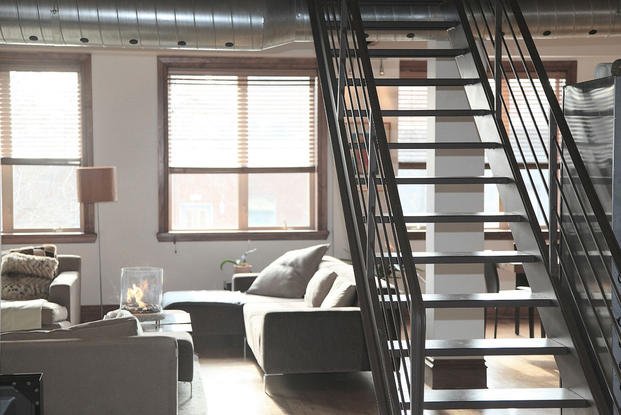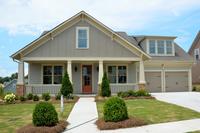Post from MilitaryByOwner
Today’s military homebuyers are contending with the tightest inventory of traditional single family homes the housing market has seen in recent history. Low interest rates are tempting for buyers, but finding a home within budget and without a bidding war is challenging, especially for first-time homebuyers.
If the timing is right for you to buy a home, but the options aren’t plentiful, it’s a wise choice to consider two alternatives: condominiums and townhouses. Both have faithful followings and offer plenty of advantages, from affordability to a long list of amenities.
Although condos and townhouses are strong substitutes for single family homes, the finances and lifestyles associated with their purchase are different from buying and living in a stand alone home. Learning about these characteristics ahead of home shopping encourages a smart purchase with years of happy memories ahead.
Here’s what you need to know about buying a condo or a townhouse.
Condominiums
A favorite of first-time home buyers because of affordable purchase prices and lower insurance costs, condos provide a combination of homeownership without the full responsibility of the upkeep that a single family home demands.
Condo ownership is unique in that it does not include the exterior areas of the home, only the interior. Condos are typically found in a multi-story building with side-by-side neighbors, who are also owners. The common areas, exterior spaces, and homeowners insurance are paid for and maintained by a homeowners association (HOA), which requires monthly fees from each owner.
The Finances of a Condo
Depending on the location, condos are typically more affordable than a single family home and townhouses, but they have other fees that could add up, beginning with the mortgage, which normally comes with a higher interest rate than other homes. The recent years’ favorable interest rates, however, could minimize this difference.
- Homeowners insurance is cheaper because it only covers the interior space.
- Property taxes are normally lower, since the tax rate and assessed value are calculated against the fact that only the interior is taxed.
- HOA fees vary widely, from over $500 per month in major real estate markets to around $200 in less expensive cities.
- HOA fees cover the use of shared commonalities such as roof repairs or fencing, but can also pay for amenities like pool use, dog parks, snow removal, trash, security systems, and parking structures.
The Condo Lifestyle
For buyers moving from an apartment to a condo, you probably won’t notice too much of a difference in your lifestyle, but for those who have owned a single family home and moved into a condo to downsize or achieve a simpler way of life, there might be a period of adjustment.
The major change will be a shortage of privacy and personal freedom. Depending on HOA rules, enforced quiet hours or restrictions on the amount of guests could be the norm. You’ll also be expected to be in constant consideration of your neighbor. Chatting with fellow condo owners at the mailbox or elevators is an everyday occurrence which many people enjoy, but others might find constraining.
Also remember that the exterior of your home is not yours to paint, decorate, or individualize unless directed by your HOA.
Townhouses
In reality, a townhouse is a single family home, and the name derives from the architecture of the building, meaning that at least one wall is shared and there are multiple floors to each home. The effects of a tight inventory of stand-alone homes trickles down to increased awareness of the pros of owning a townhome as the lifestyle is similar.
The Finances of a Townhouse
Townhomes are typically more expensive than a condo, but provide additional space, privacy, and autonomy. Homeowners who prefer less exterior upkeep often enjoy the townhouse way of life.
Location is a significant factor when tallying the costs of owning a townhome. Upscale and sought after neighborhoods not only demand a higher asking price, but odds are, the HOA fees will be higher too.
- Homeowners insurance has higher premiums than a condo because it covers the interior, exterior, and the property the townhouse sits on.
- Similar to a stand-alone home, a townhouse’s property taxes are calculated on:
- Local government’s tax rate
- Square footage
- Acerage
- Number of rooms
- Neighborhood
- In a townhouse community, a major concern of the HOA is to increase and maintain the desirability and value of the overall neighborhood, which could mean expensive and regulated upkeep of the overall exterior, including painting and required renovations.
- These costs are in addition to typical HOA fees that pay for snow removal and lawn care, trash, outside maintenance, and some include water/sewer services.
The Townhouse Lifestyle
Living in a townhouse affords the owner some of the experiences of living in a condo (shared walls, HOAs, community feel) but with a bit more freedom (private entry, less communal services) and responsibility (patio and yard maintenance).
Privacy is determined by individual communities--some have more, some less. If this is an important quality to you, checking in with current owners and watching the patterns of the community will help determine what to expect. But, overall daily interaction with neighbors is less than what is typical of living in a condo.
Although yards, decks, and patios are likely amenities, their footprint is probably on the small side, in view of your fellow townhome owners, as well as subject to HOA rules. Pet habits and owner responsibility, or lack thereof, are common neighbor disputes. A strong HOA covenant helps to ensure the quality of life for all the neighbors.
Although a condo or a townhouse might not be your first thoughts to the path of homeownership, both styles of living have enticing qualities that could help buyers during the sustained U.S. trend of a shortage of housing.




